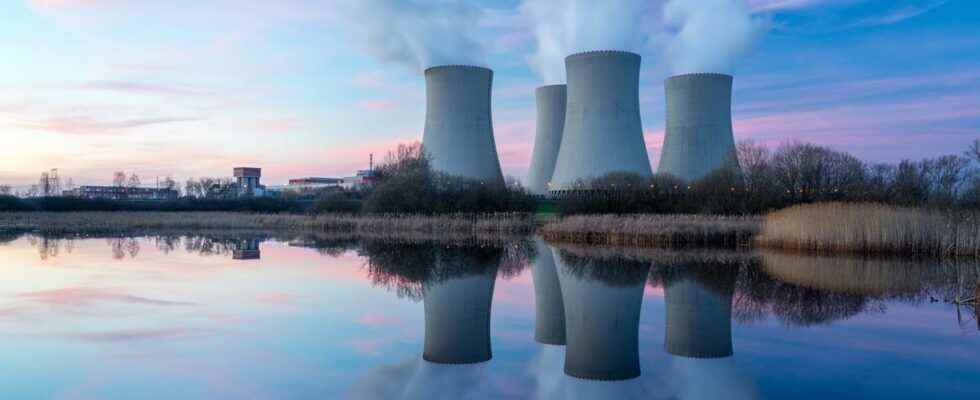New thermal discharge limits applicable to the reactors of the Bugey, Blayais, Saint-Alban-Saint-Maurice, Golfech and Tricastin power plants have been set and will be valid until 11 September.
The nuclear power plants of Blayais, Saint-Alban-Saint-Maurice, Golfech, Bugey and Tricastin will benefit until September 11 from environmental exemptions concerning water discharge temperatures due to high temperatures, despite impacts possible negative effects on the environment. A decree published on Saturday in the Official Journal fixes “new thermal discharge limits applicable to the reactors of the Bugey, Blayais, Saint-Alban-Saint-Maurice, Golfech and Tricastin nuclear power plants“. It is specified that the implementation of these measures will be “associated with an enhanced environmental monitoring program“.
Each plant has its own regulatory water discharge temperature limits that must not be exceeded, so as not to heat up the surrounding waterways and to protect the fauna and flora. The power plants indeed pump water to cool the reactors, before rejecting it.
Read alsoNuclear production threatened by drought
These derogations are justified by the fact that “in the absence of temporary modification of the current thermal discharge limits, the operator would have to stop the operation of these nuclear power plants or reduce their production in order to limit the heating of the Gironde estuary for the Blayais, Rhône power plant for the Saint-Alban-Saint-Maurice and Bugey power plants, the Garonne for the Golfech power plant and the Donzère-Mondragon canal for the Tricastin nuclear power plant“, even though “the maintenance of a minimum level of electricity production by the reactors of nuclear power plants (…) constitutes, with regard to the security of the electricity network, a public necessity“.
“The Bugey nuclear power plant has just been authorized to discharge water that is warmer than usual. This is not going to help improve biodiversity in the Rhône, which suffers from summer heat waves, like all French rivers.“, reacted on Twitter the NGO France Nature Environnement (FNE).
SEE ALSO – Should new nuclear power plants be built?
